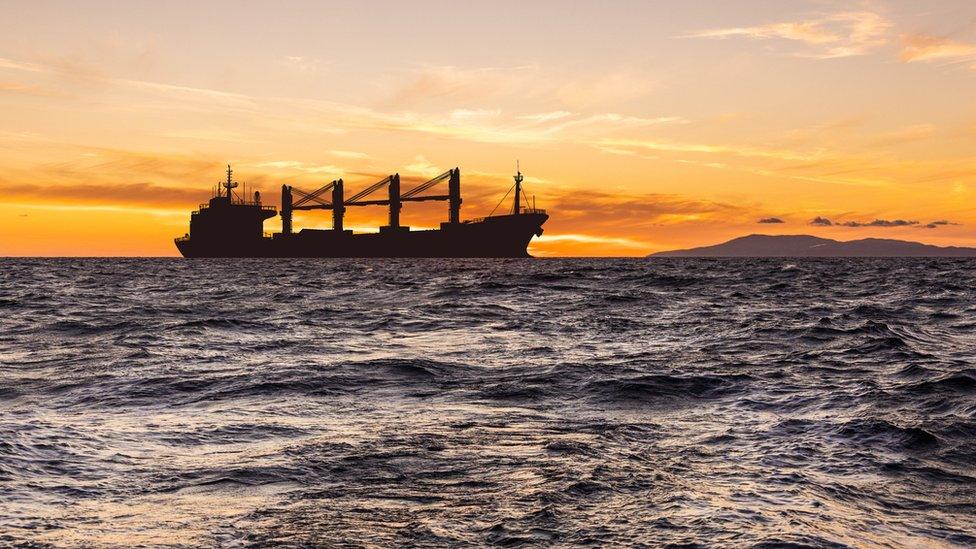EU plans Russian gas price cap despite Putin threat
- Published
- comments
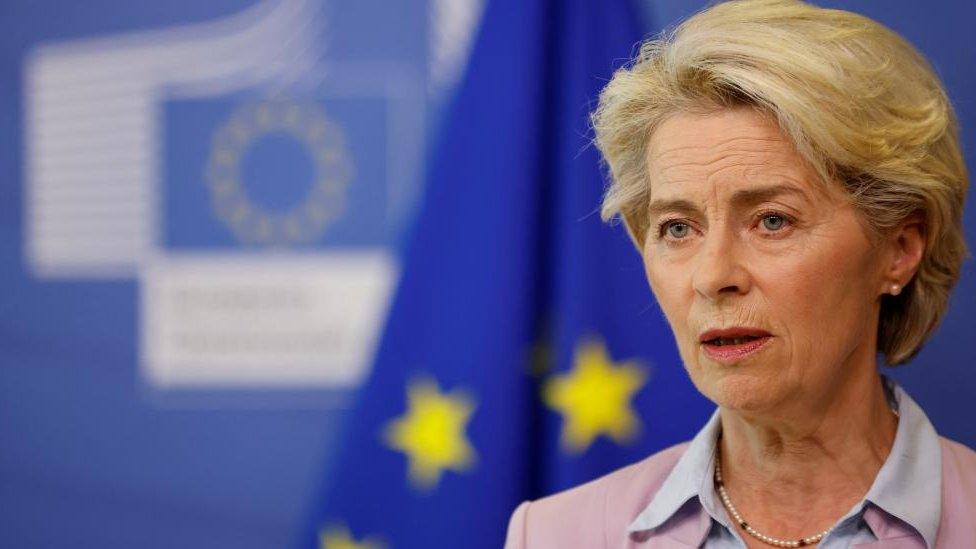
Ursula von der Leyen said as well as price cap there should be a mandatory target to cut peak electricity use
The European Union's executive body has proposed capping the price of Russian gas, within hours of Russia's leader condemning the idea as stupidity.
Energy prices have soared in the wake of Russia's invasion of Ukraine, forcing the EU's 27 states into action.
"We must cut Russia's revenues which Putin uses to finance this atrocious war," said European Commission chief Ursula von der Leyen.
But Mr Putin said Moscow would react to a cap by halting supplies completely.
"We will not supply gas, oil, coal, heating oil - we will not supply anything," he said, if it went against Russia's interests.
European leaders have accused Moscow of "weaponising" its gas exports in response to Western sanctions on Russian individuals and businesses.
While the Kremlin denies that is the case, the big Nord Stream 1 pipeline into northern Germany has been shut indefinitely, with Moscow directly blaming sanctions.
Last week, the G7 group of nations - announced a price cap for Russian oil - a move it said would reduce both Moscow's revenue for its Ukraine invasion, and inflation in the West.
Finnish researchers recently estimated that Russia has made €158bn (£136bn), external from surging fossil fuel prices during the six-month invasion - with EU imports accounting for more than half of that.
Speaking to an economics forum in the far eastern city of Vladivostok on Wednesday, Russia's leader condemned sanctions as economic aggression, and a "fever" posing a threat to the entire world.
The quality of life for Europeans was being sacrificed while poorer countries were losing access to food, he argued: "Now we are seeing how production and jobs in Europe are closing one after another."
Although he acknowledged inflation in Russia was rising, he minimised the effect that sanctions were having on Russian companies: "I am sure that we have not lost anything and we will not lose anything."
Russian companies have struggled to source much-needed imported parts. But Mr Putin asserted that confidence in the dollar, euro and pound was being lost before people's eyes - while Russia was emerging from the war with its sovereignty strengthened.
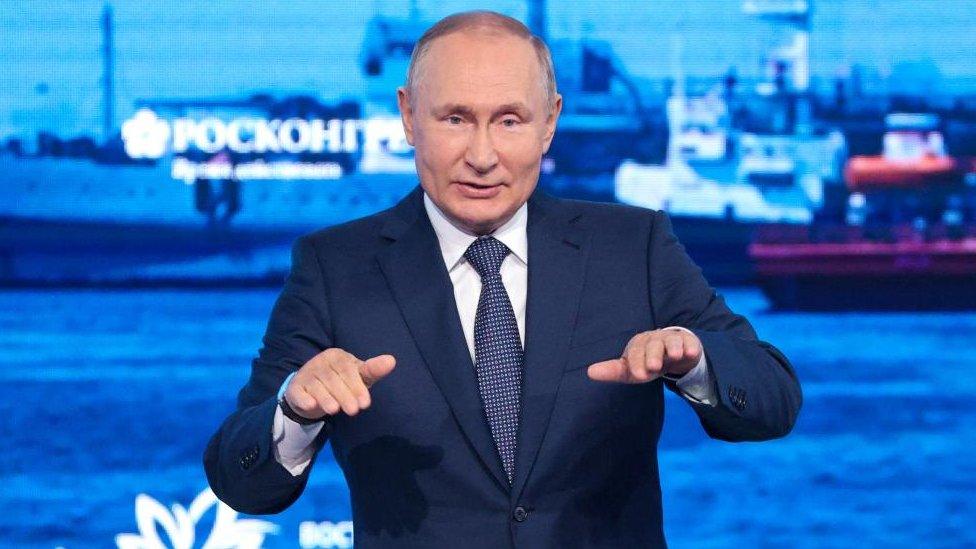
The Russian leader said Western currencies were falling while Russia was not losing anything
Russia launched its invasion on 24 February and now occupies around a fifth of Ukrainian territory. Six months on, it has been pushed back from areas around Kyiv and the north and now faces a Ukrainian counter-offensive in the south and east.
Western nations responded to the war with several rounds of sanctions. The European Union has attempted to cut its reliance on Russian gas and oil and Moscow - and on Friday EU energy ministers will try to decide how to protect consumers and businesses from the threat of enormous bills over the winter.
Ahead of the meeting, Ursula von der Leyen said Europe had weakened Russia's grip on its gas requirements. Gas storage was already up to 82% and supplies had increased from the US, Norway, Algeria and other countries.
Before the invasion, Russia accounted for 40% of the EU's imported gas, but today that proportion was now down to only 9%, she said.
As well as a price cap on Russian gas, EU ministers have been looking at how to separate the cost of gas from the price of electricity, which are linked in Europe's market. The Commission president outlined several other plans:
A mandatory target for reducing electricity use at peak hours
A cap on revenues for companies making unexpected profits from low-cost electricity such as renewable energy
A "solidarity contribution" from fossil fuel companies
Helping struggling energy companies cope with the volatile energy market with "liquidity" support
The plans will go before energy ministers on Friday, and one diplomat told the BBC he was sceptical: "Good luck getting that through council complete and intact."
EU member states have already responded to the crisis with a series of packages to help consumers. At the weekend Sweden and Finland announced liquidity guarantees for power companies, while Germany said it would spend €65bn (£56.2bn) with help for the vulnerable as well as tax breaks for energy-intensive businesses.
In Vladivostok, Mr Putin went on to accuse Europe of cheating the developing world out of Ukrainian grain exports in the wake of a UN-led deal to lift Russia's naval blockade.
For months ships were unable to leave Ukraine's three Black Sea ports but shipments resumed last month. Mr Putin told his audience that only two grain ships had since gone to Africa - which is not the case. He said he wanted to discuss revisiting the deal, in remarks rejected by Ukraine as groundless.
Other ships have left for Yemen and Sudan while several vessels have gone to ports in Egypt.
A UN-chartered ship carrying 23,000 tonnes arrived in Djibouti last week. The grain has now reached Ethiopia in 60 lorries, with the aim of feeding more than one and a half million people in a country blighted by drought and civil war.
Under the agreement all cargoes are approved by a joint centre in Turkey. The centre says 2m tonnes have been authorised so far,, external including to Turkey and the Middle East as well as ports in the EU.


- Published31 August 2022
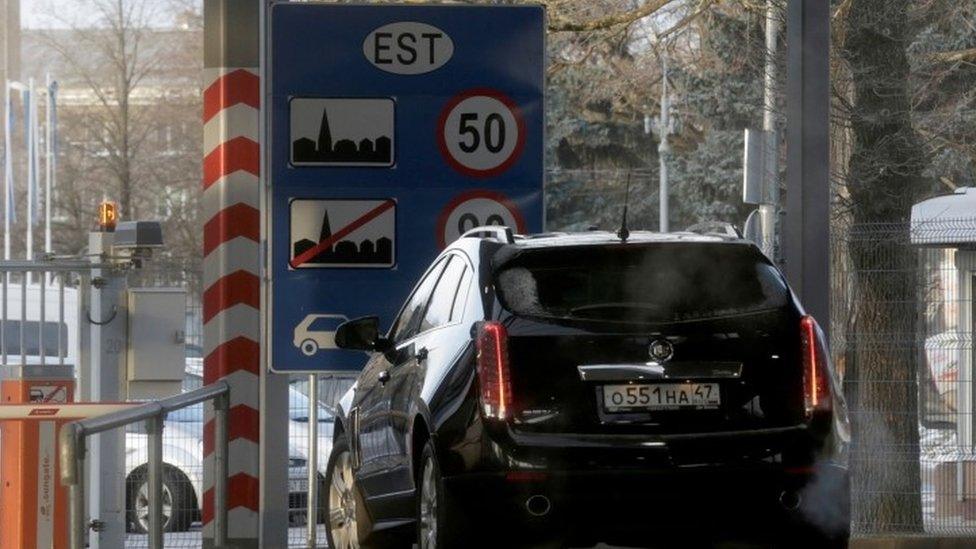
- Published23 February 2024
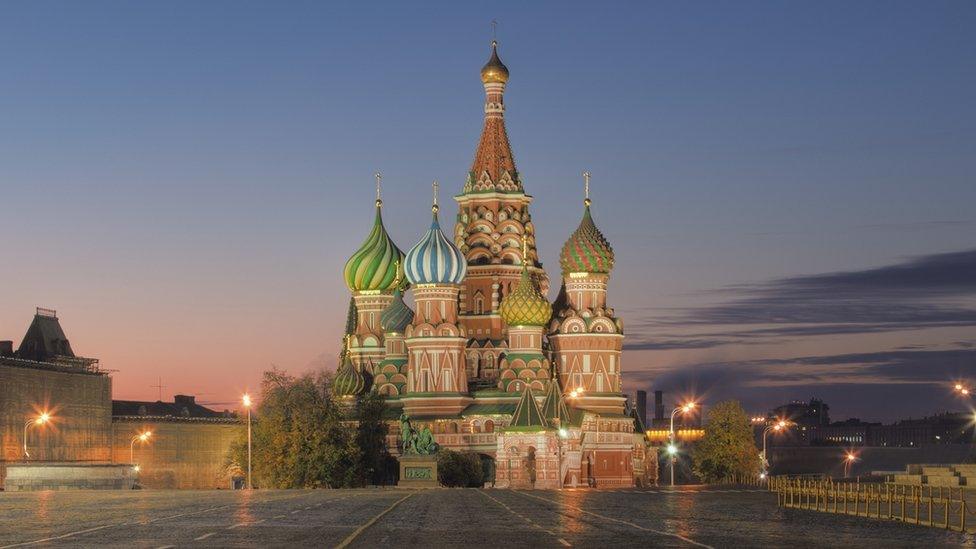
- Published30 August 2022
